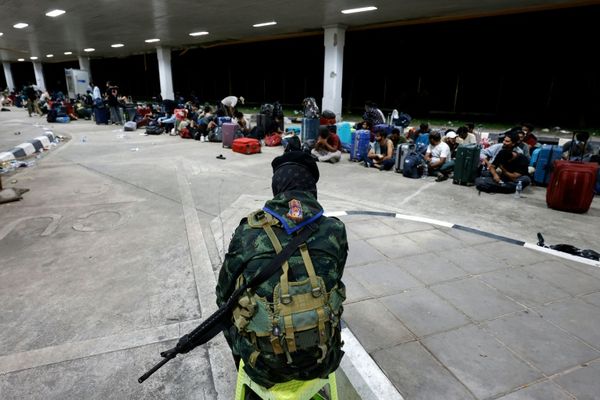
In 2019, Remco Evenepoel made an - at the time - somewhat unorthodox move straight from the junior ranks into the WorldTour, his youthful exploits more than enough to impress the then-Deceuninck-Quick Step team. In the six years since then, the Belgian has been world champion three times, become double Olympic champion, won a Grand Tour, and racked up countless victories. It’s fair to say that for Evenepoel, and his team, making that jump when he did has been an unbridled success.
The Evenepoel signing seemed to open the floodgates for riders, teams and agents, and since 2019 the number of juniors turning pro straight away has steadily grown, with more and more riders skipping the under-23 ranks. On the women’s side of cycling, the professionalisation of women’s WorldTour teams briefly saw a lull in younger riders moving up to the top level so quickly, but these days, women’s teams are very much on board with the trend of securing talent early.
From an almost non-existent practice a decade ago, we now see riders not only being snapped up by WorldTour teams straight away but being signed up earlier and earlier. Riders like Cat Ferguson and Albert Philipsen signed WorldTour contracts whilst they were still first-year juniors, and the notion of committing to a team a year or two years in advance has become accepted. These days, a junior can finish their first year in the U19 ranks with a WorldTour team already confirmed, something riders used to have to work towards until their final year of U23.
It’s clear that the Evenepoel story was not a one-off, and this is something that’s only going to happen more, not less. But why is it happening quite so much, and is it working for everyone involved?
The first consideration in the question ‘Is it working?’ should be the riders, the 18-year-olds who are thrown into the highest level of elite sport. It’s a big challenge in many ways - professional and personal - and the risk of failure can be high.
Sign up to the Musette - our subscriber-only newsletter
In 2024, there were 11 first-year senior riders across the men’s and women’s WorldTour pelotons, three men and eight women, and a closer look at their seasons reveals a wide spectrum of experiences. Of the men’s trio, AJ August and Markel Beloki have had consistent, if winless, seasons, but Theodor Storm has been sidelined all season by injury, with no return date planned. On the women’s side, riders like Fleur Moors and Lore De Schepper have slotted into their new teams with ease, whilst Felicity Wilson-Haffenden - TT world champion in 2023, usually a strong indicator of ability - has had a stop-start year.
No experience is more normal or expected than the other: though the gap between junior and WorldTour seems to be a manageable one, and some riders can be successful straight away, it remains a big jump. In terms of training and racing loads as well as the personal challenge, it’s not completely surprising to see riders then struggle with DNFs or OTLs. What’s arguably more important than results, which may come or may not, is how the riders adjust and adapt to their new professional environment.
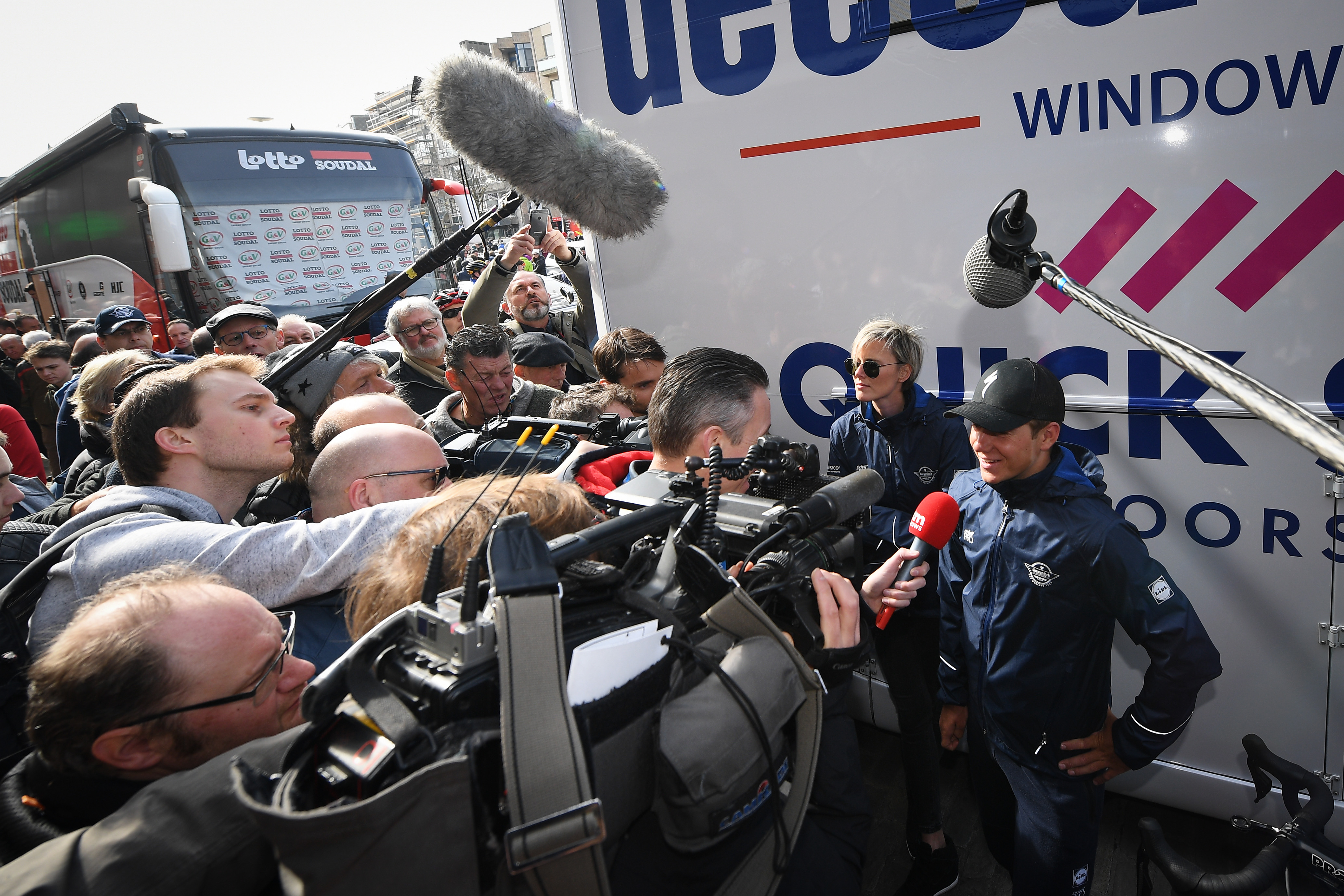
Integrating into the WorldTour
In 2024, the women’s Lidl-Trek team really ran with their junior recruitment and brought on five first-year seniors for this season, Felicity Wilson-Haffenden, Fleur Moors, Izzy Sharp and Ava and Isabella Holmgren. For those five 18-year-olds, being able to share the experience certainly made it easier, but that doesn’t mean it wasn’t a big leap out of their comfort zones.
"I didn’t know anybody, and my English was also not good, so that was really scary for me," Moors told Cyclingnews, recounting her first camp with the team. "I came to the airport on my own, I never did that before, so all those things were so stressful."
Though the young Belgian may have had the biggest culture shock in turning pro, road racing-wise, Moors has probably been the most successful of Trek’s new recruits. She recorded 23 race days - the others’ figures were all below 20, though the Holmgrens were also racing on the mountain bike - and picked up a string of top-10s in Belgian one-day races in the summer, albeit after a tough entry into the season.
"In the beginning, it was more climbing courses, and I’m not a real climber. It was really difficult because on this level on those climbs, I was really dropping off every time," she said. "But then Ina [Teutenberg, Lidl-Trek DS] said to me ‘you don’t have to be so hard on yourself’. Then after that, I had some races with not so much climbing, more my kind of race, and I did some good things which gave me confidence."
"I was not expecting that," she said of her mid-season successes. "But that’s also because of the team I’m in now, because if I were not in this team then it wouldn’t be possible to have top-10 places there. We have such good support and the trust is also there. Also, the older riders, they teach you in races, how to deal with things, which is really nice and gives you the confidence to go for a result."
According to Moors, Trek’s approach to their young riders was to expect a high level of professionalism from them, and allow them to learn from their older and more experienced teammates - to learn and adapt by doing, rather than being explicitly taught. This, and having access to all of a WorldTour team’s resources, has clearly worked for a rider like Moors, but some teams prefer a more hands-on approach.
"I think from a team's perspective, it's easier to scale up than to scale down," EF-Oatly-Cannondale manager Esra Tromp told Cyclingnews, offering a different idea of how to treat junior recruits.
"So if you treat the riders you sign really as juniors, as little girls really, and plan everything around that, so help with the training plans, help with everything, and invest time and resources to give explanations on literally everything - what to pack for a race, really everything that you can think of - then it's easier to scale up.
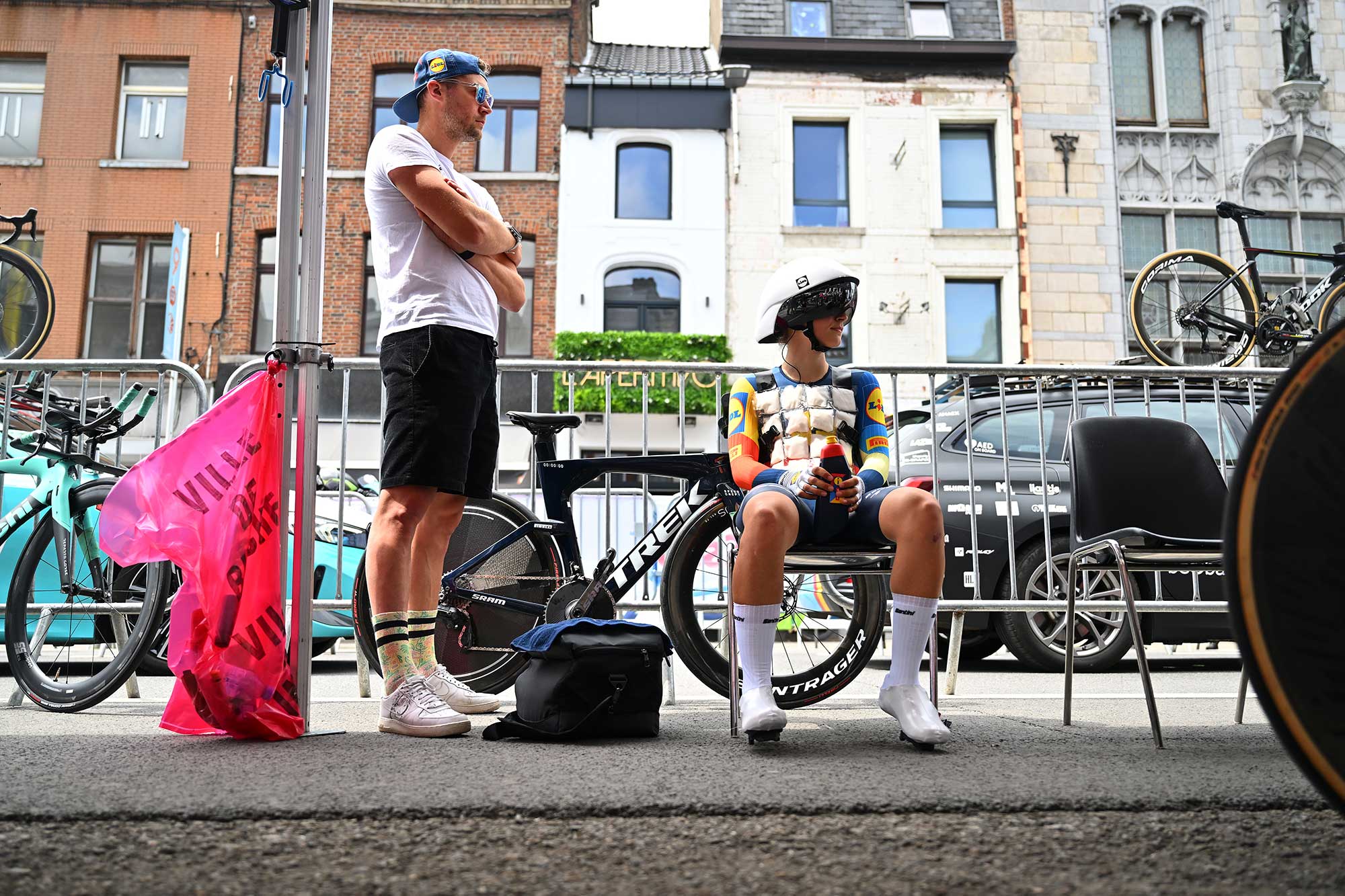
"When we see the level is higher, then the level of explanation can be a little less or whatever, but to scale down, that really a lot of times feels like a failure for the riders. So treating them a little younger than maybe they are is key I think.
"It's not that you want to say that they are completely inexperienced - you also want to treat them well and appreciate where they already are - but it’s a big step going from juniors to the elite, and sometimes an exposure technique works, but you need to be really careful with that."
In many ways, moving into a WorldTour team can be an even less stressful experience than moving into an U23 or Continental team. The resources - nutrition, psychologists, coaches - are more abundant, and the pressure of fighting for a contract in every race is off.
"I think it's the opposite [of pressure]. It puts pressure on them to get selected, but that can be looked at as positive pressure," Jayco AlUla general manager Brent Copeland said. "Then once they're selected and they're going to that grassroots pathway, then the pressure is taken off because they know they're there to learn from us."
The teams: benefit and responsibility
For WorldTour teams, there is a clear benefit to signing riders so young: you get to secure talent onto your roster, and shape the earlier years of their career, which can sometimes be more important than results or wins.
"It's becoming more and more important every year, because you want the riders also to learn about the way the team works on an ethical level, the culture, this is important for us," Copeland said.
At the start of 2024, Jayco signed Hamish McKenzie and Wil Holmes on long-range deals - McKenzie will join the team in 2025, whilst Holmes will race for the team’s development partner, Hagens Bermans Jayco, in 2025 before joining the WorldTour team on a three-year contract in 2026.
"It's difficult to take a rider who is 22, 23 years old that's been racing for another team, throw him in and change his ways and culture. That's where that development really comes in as a big help for us.
"For us, it's not a question of trying to find a youngster who's the next Pogačar - of course, we're all looking for that - it's more about having the riders learn how the team works, the culture, the ethics. That's important."
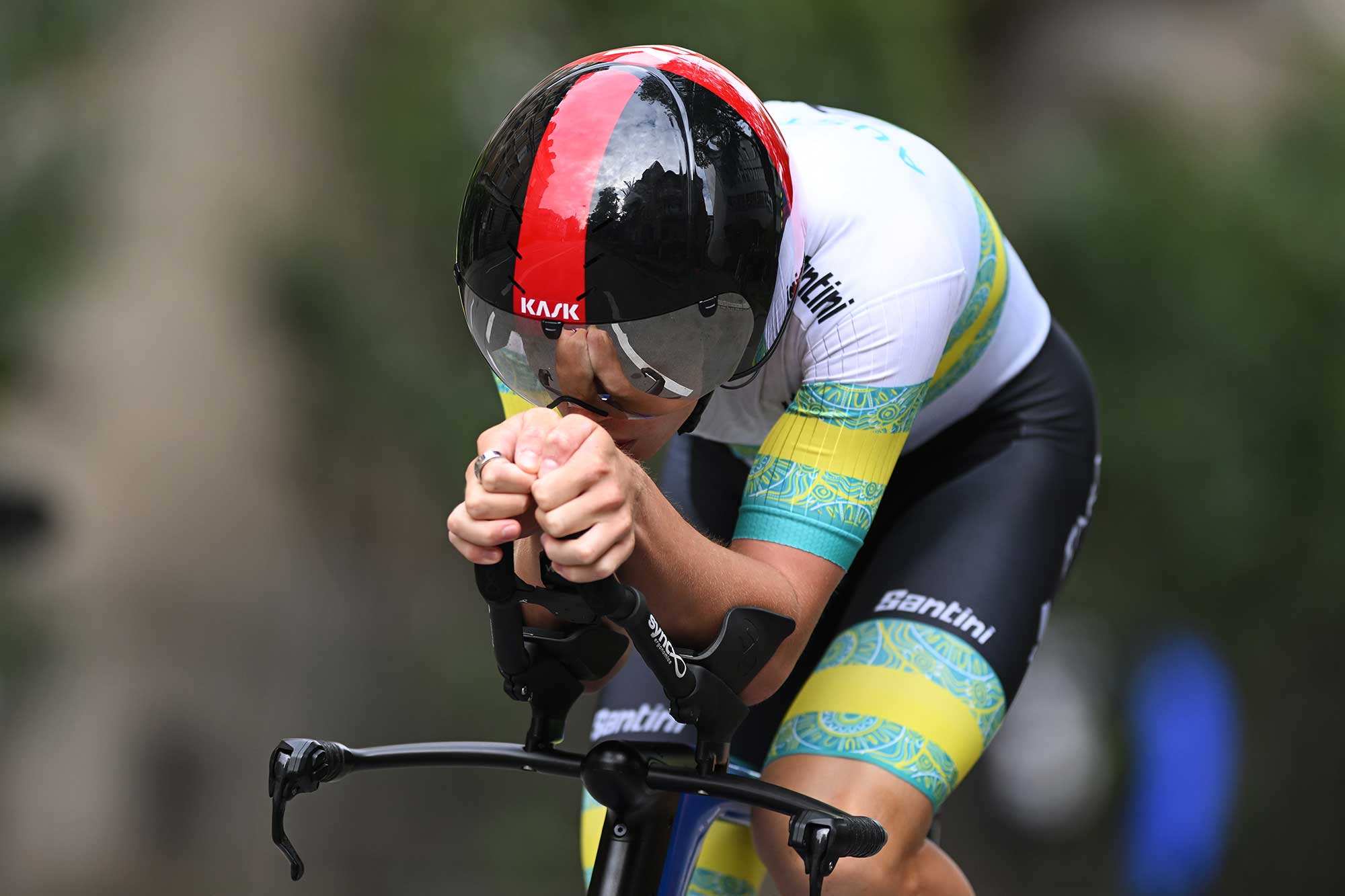
However, as well as the clear benefits a team gets from securing talented riders in this way, it’s something that comes with a lot of responsibility in terms of helping the rider develop, and it’s a balance that teams don’t always get right.
"With a lot of teams, that's not a focus," Tromp said on the topic of riders’ personal, off-the-bike development. "I can't blame them, in the end, they are professional teams and they want professionals in their team, and they can expect that from girls who are older, that they are really professional, but if you sign a new elite rider, what can you expect?"
"I think what we see [in] a lot of teams is that there are riders signed but there's no idea, there's no programme, they only train and they have no races, and if they [do] have races, then the races aren't really helpful in their development," she continued.
Though EF-Oatly-Cannondale deliberately did not sign any young riders in their first year, they have secured a first-year elite rider for 2025, and Tromp is determined to get it right, and not repeat the failures she’s seen in other teams.
"It's only process goals and no result goals. So for example we make development plans with the riders, and for a [junior] rider that we signed for next year we will make those plans in the next couple of months, but I already know that there are no race result goals in that plan," she said of her ambitions for their new signing.
For Tromp, this really does mean starting from scratch. Even things as simple as taking your hands off the handlebars to go through a feed zone are things that juniors have to learn when joining the pro peloton.
"All these little things, it sounds stupid, but it needs to be practised, it needs to be learned, so I think it's really important to focus on the first process for at least the first two years, maybe sometimes a little bit longer. Reading the race, reading the tactics, understanding what is happening in the race, preparing yourself, how to fuel, what to eat, how to be relaxed into a race, all these things are part of the process."
The agents: a money game?
Perhaps the group that attracts the most cynicism in the conversation about junior contracts is the agents. When high-profile agents are working with younger and younger riders to secure big, long-term deals, it’s easy to imagine that the agents are seeing these riders as investments and opportunities, rather than young athletes who need a lot of care.
"We see riders and agents really looking only to the financial aspect of turning pro, instead of what's really important and that's the development of the rider," said Tromp. "So that's really a big failure in my eyes.
"Unfortunately we see a lot of ‘interesting’ agents who only sign for [the] highest amount of money, and I think that's just stupid."
Jamie Barlow, the agent who represents Josh Tarling, Cat Ferguson, and a host of other young riders, roundly rejected this idea and said that for him, a WorldTour contract is not the priority, and the cynicism is misplaced.
"I would hate to think that some agents are actively trying to convert juniors directly to WorldTour for that short-term financial gain, and that’s certainly not how I operate," he told Cyclingnews.
"I understand that from a team's perspective. A lot of teams still don't like working with agents or managers, but the top teams realise now that that's the way the sport is changing and transitioning. I think with each athlete, you have to take a case-by-case basis. So I understand some juniors wanting to go directly [to the] WorldTour, and I also understand that it's not the smartest move for even some of the best juniors in the world. But they all have different financial backgrounds and different motivations, and from my side, I'm definitely an advocate of going [via] the U23 route rather than directly WorldTour."
Whilst some agents may have less positive motivations, Barlow is someone who takes his duty of care to his riders seriously. He has moved his family to Girona to be closer to the riders he works with, and is very conscious of the practicalities of turning pro so young.
"I think especially for riders who are maybe from Australia or New Zealand or North American riders, it's one thing to be super talented and to smash tests in the lab, but they also have to learn how to be away from home, get set up in Europe, be responsible for paying bills, shopping, laundry - all the everyday tasks that they’re used to mum or dad or grandparents or guardians doing for them. I don't think a lot of teams take that into account either. So I'm certainly not an agent or a manager who pushes juniors to go directly WorldTour, no matter how much they're offered."
Teams are beginning to offer that off-the-bike support - anecdotally, you hear of teams going as far as renting homes for riders who are new in Europe - but it’s not equal across the board, and for an agent like Barlow, looking for that support is more important than the money on the table.
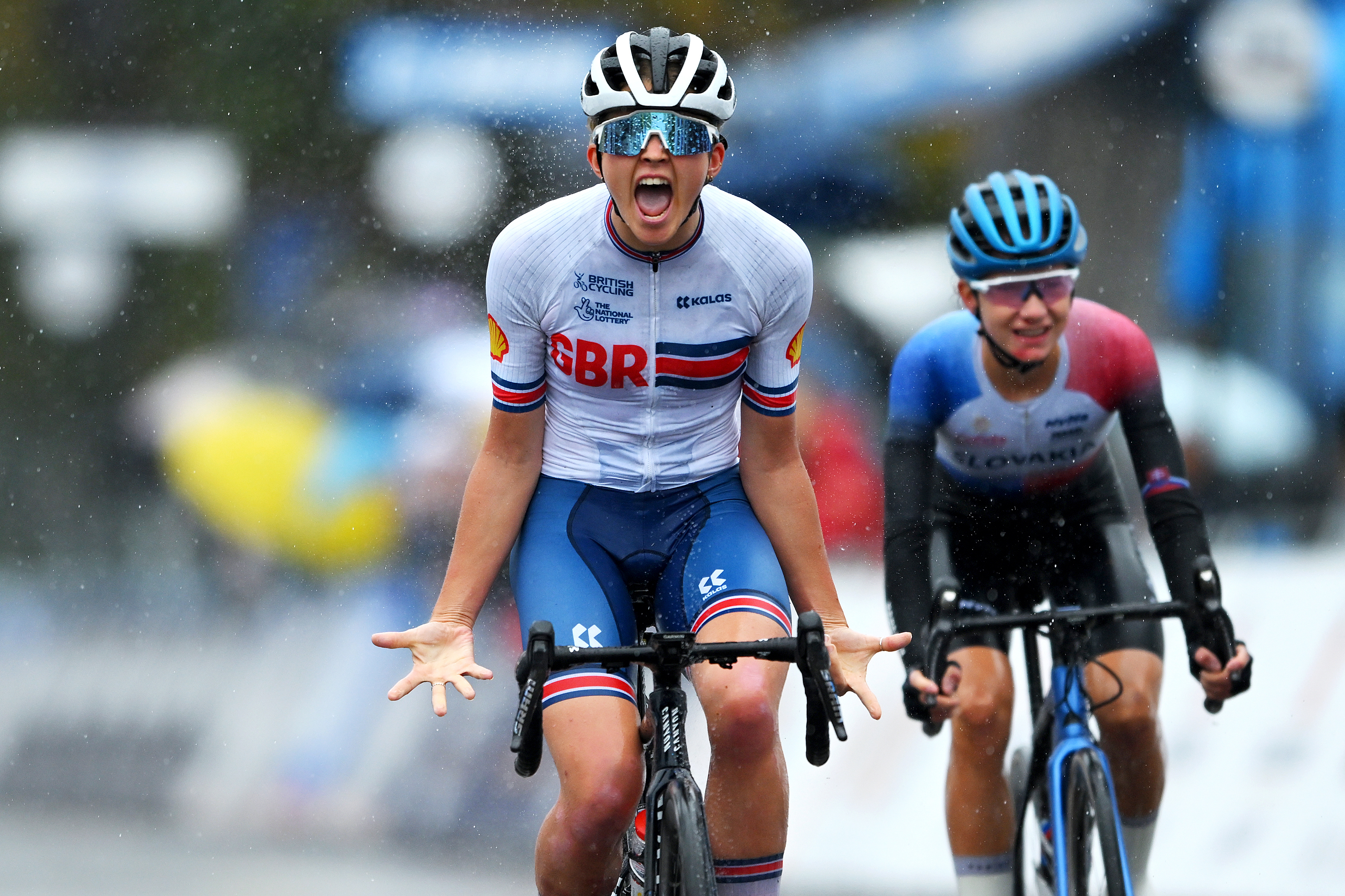
"Depending on the rider, and what characteristics the rider has and what their ambitions are, you need to marry that with a team that you believe is going to nurture them and guide them through those first couple of years. Some teams are far better than others at it. There are some teams I refuse to work with, just because the atmosphere in the team, for me, is not conducive to a young rider enjoying their profession. So I'm quite selective."
Barlow’s approach is clearly working, with Tarling and Ferguson arguably two of the most successful and high-profile junior-to-WorldTour converts in recent years, and much more than just financial successes for their agent.
The tide is unlikely to turn
Though we’re six years on from the Evenepoel experiment, riders and teams are still finding their footing when it comes to how best to approach talented juniors, and the experiences are mixed. We remember those who thrive, but each year just as many, if not more, youngsters suffer through their first years, and don’t become immediate stars.
However, what’s clear is that despite the challenges and teething problems of the junior to WorldTour pipeline, it’s not going to go away any time soon. The concept of the junior road world champion turning pro - or indeed already being a WorldTour stagiaire when they win - is almost commonplace these days. Of the winners across the ITTs and road races in Zurich this year, all but one is already confirmed for the WorldTour next year, and most of the podium finishers will also be on WorldTour teams or their development programmes next season.
Evenepoel may have been an exception at the time, but his pathway is becoming the norm. Teams have already learnt how to scout and secure young talent; the next step will be making sure they also know how to nurture these riders so that success can follow too. Some have their reservations, and the support needs to be solid, but overall, the situation is clear: invest in a young rider properly, and you’ll get more than enough back.
If you subscribe to Cyclingnews, you should sign up for our new subscriber-only newsletter. From exclusive interviews and tech galleries to race analysis and in-depth features, the Musette means you'll never miss out on member-exclusive content. Sign up now.


